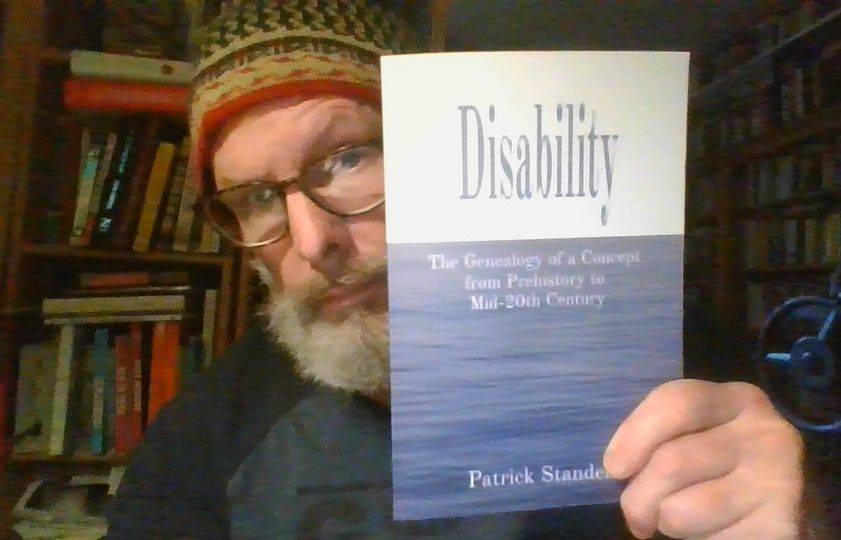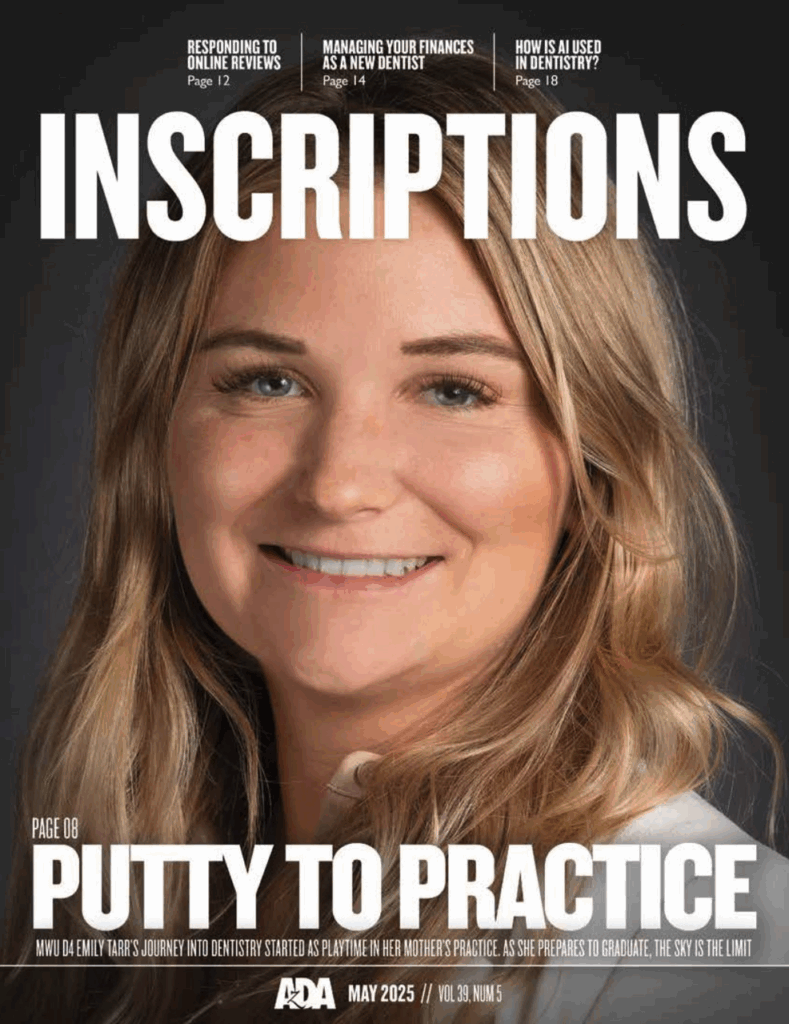
Patrick Standen with his new book
Patrick Standen, a Saint Michael’s College philosophy instructor and author, has a new book publication to his credit after spending the last six years delving into research in the mornings, writing longhand in notebooks, typing a manuscript, and integrating research. The title of Standen’s book from publisher Onion River Press is Disability: The Genealogy of a Concept from Prehistory to Mid-20th Century.
Standen said that after noticing many years ago a demand for the type of book he was interested in writing, he dedicated himself to compiling a fairly readable, easy, and affordable book about the genealogy of disability for students and colleagues to integrate into their classrooms.
“Over the years, I’ve been searching for a text that’s just a one volume history of disability, and I really couldn’t find one,” he said. “There was a distinct need, and there’s also this burgeoning field called disability studies, so I thought this was a great opportunity to add to that discussion and put together a book.”
The author describes the book as a “survey,” meaning he has taken many different histories of disability and cobbled them together in order to conceptualize disabilities throughout the centuries.

The cover of Standen’s new book
“It looks at the concept of disability but it is not an etymology of the word,” he said of his book. “I’m not looking at where the word comes from, but instead how the concept behind the word changes culturally and historically.” Standen conducted research about French theorist Michel Foucault and his theories of power, finding frequent similarities in the work Foucault was doing to his own work.
“Foucault looked at the genealogy of power, which questions how certain words develop and why we use them,” the author said. “He particularly looked at mental illness and showed that institutions developed as a way to control what was formerly thought of as acceptable behavior but is then turned into a pathology by modern medicine to gain control and money. So while he focused on mental health, he didn’t focus much on physical health or ability, so that’s what I’ve aimed to do here.”
Standen said that, while he of course used sources like books and scholarly articles to research the subject, he tried also to be a modern researcher. “I tried to look at blogs, podcasts, and interviews, different media which broaden the appeal in the scope of what we do,” he said. “I’ve cast my net pretty wide in terms of the different histories and cultures.”
After a few years of writing and compiling his work, Standen said, it felt as though the book began to take a sort of organic form on its own. However, even with a manuscript of about 650 pages, he never felt as though the book was completely finished. Eventually, though, he had to be content enough with the final manuscript to pass it off to the publisher. “I’m convinced that the idea of a book being a final product is a misnomer — it’s never done,” said Standen. The published book now consists of 292 pages after extensive editing and tough decisions about cuts.

Patrick Standen presenting a Ted Talk in recent years.
Standen said he hopes that his book is a helpful resource for classrooms and individuals looking to learn about the concept of disability. He already has incorporated his text into one of his classes as a resource, with students finding it to be a helpful reference.
On March 1, Standen will be hosting a public talk on Zoom with the philosophy department about his book at 4 p.m.; for access to the zoom link, contact Crystal L’Hote of the philosophy faculty at clhote@mail.smcvt.edu. This event is open to alumni, students, faculty, staff, and the community. Additionally, you may find Standen’s book locally at Phoenix books or on Amazon at this link.

For all press inquiries contact Elizabeth Murray, Associate Director of Communications at Saint Michael's College.






